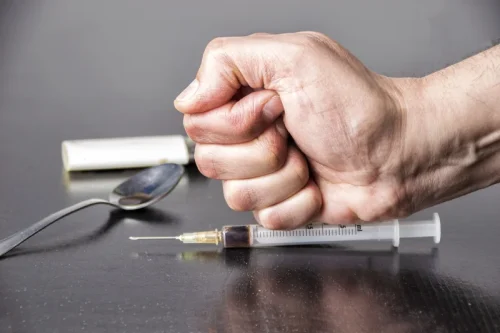6 Common Myths About Drug and Alcohol Use Sharp HealthCare

One nontraditional form of treatment for alcohol use disorder is moderation management. This approach involves limiting alcohol consumption, specifically for people who aren’t physically dependent on alcohol. Alcohol use disorder is a complex medical condition affecting the brain. It involves an inability to control your alcohol consumption, regardless of its negative effect on your life or health. If you’re like many shift workers, alcohol may be a way to unwind after a tough shift or relax on your time off.
Drinking Is Popular Among The People You Know

Among the different subtypes of alcoholism, functional alcoholics drink an average of 181 days per year, the equivalent of every other day. Chronic, severe alcoholics drink, on average, 247.5 days per year, which is also less than daily. In some cases, alcohol withdrawal can lead to serious and potentially fatal complications, such as seizures or delirium tremens. People often must complete a medical detox program to keep them safe as they manage withdrawal symptoms. But as recent research has shown, alcohol likely has zero health benefits, and the studies that purported that it does used flawed data. Here we explore ten common myths or misconceptions concerning alcohol and alcohol use disorder (AUD).
- Once it enters your system, it triggers immediate physiological changes in the brain, heart, and liver, among other organs.
- This myth can especially be harmful if it causes you to drink more than you can handle — so always pay attention to the alcohol content in your drinks and be honest with what your body can manage.
- Due to the nature of addiction, it is unlikely that casual or occasional drinking will remain under control.
The Truth:
Alcohol also interferes with this zone, making the hormone-driven changes worse. “Alcohol is also inflammatory and increases your risk of cancer and other diseases,” he says. If you use alcohol as a way to numb your symptoms of anxiety, this can also make the symptoms worse down the line — due to the fact that you’re not learning how to cope with your emotions properly. Normally, your body cycles through light and deep phases of sleep. Alcohol inhibits refreshing REM (rapid eye movement) sleep and later on causes “REM rebound,” with nightmares and trouble sleeping. Some believe that completing a rehabilitation program is a definitive and permanent solution to addiction.
- While flavonoids do support heart health, you can get them from healthier sources like fruits and vegetables.
- They’re also more likely to experience or participate in violent acts, from fist-fights to sexual assault and homicide.
Myth #8: Once You Develop Alcohol Addiction, You’ll Never Overcome It

But while alcohol can make you drowsy, it also messes with your sleep cycle, leading to poor-quality sleep. For others, they may experience daily cravings, which is an indication of a substance use disorder. Alcohol and substance use is problematic when it affects a person’s relational, occupational or mental functioning. It’s important to look for any changes in a person’s behavior and identify if this is due to their alcohol or substance use. While all types of alcohol can be addictive, the serving sizes can differ based on the type. For instance, one serving of beer is 12 ounces, with 5% alcohol by volume.
You can’t become an alcoholic by drinking only beer.

Bedrock Recovery Center, located in Massachusetts, offers plenty of addiction treatment programs. Many people might think that the body can never recover from addiction even after you stop drinking alcohol, however, this isn’t necessarily true. Though drinking occasionally may not be a possibility, it is possible to overcome alcohol addiction and live a normal life after developing this disease. This may include alcohol withdrawal symptoms like headaches, nausea, vomiting, or mental health repercussions like anxiety or depression. Instead, the habits or patterns you adopt when drinking alcohol are more indicative of whether you are struggling with alcohol addiction. Furthermore, combining caffeine and alcohol can lead to poor decisions due to the contrasting effects of the substances on the nervous system.
Myth #6: Confrontation and shaming are effective strategies to stop drinking
In reality, people who have an alcohol use disorder may be able to hide their addiction and continue to function quite well at work. But that doesn’t mean there isn’t a lot that people still misunderstand about drinking alcohol, which has deep roots and a complicated history in the U.S. No matter how much a guy drinks, if you drink the same amount as your male friends your blood alcohol concentration will tend to be higher, putting you at greater risk for harm. It takes about 2 hours for the adult body to eliminate the alcohol content of a single drink, depending on your weight. Nothing can speed up this process—not even coffee or cold showers. With all of these myths cleared up, you may be wondering where to seek out treatment for alcohol addiction.
Common Misconceptions About Alcohol: Myths About Drinking
In fact, a massive study on the global burden of disease, covering 195 countries over more than 25 years, recently determined that there is myths about alcoholism no safe amount of alcohol. It’s common for people to have a casual relationship with alcohol. However, this attitude may contribute to many myths about alcohol and alcohol use disorder. But there’s still a lot of misinformation about alcohol and alcohol use disorder. As shift workers, we face unique challenges when it comes to managing stress, sleep, and health.
Myth: I’m ok to drive in the morning after drinking.
While the sleep-inducing effect of booze can help you drop off at first, alcohol suppresses Rapid Eye Movement (REM) sleep which can make for a less restful slumber overall. Drinking alcohol before bed also means trips to the bathroom are inevitable, as alcohol is a diuretic. Another side-effect you’ll experience is sweating more, adding to the dehydration. This is the perfect cocktail to have you waking up feeling sleepy and with a sore head and might leave you wondering if that night cap was really worth it. Cultural norms would have you believe that drinking is integral to certain activities, like a wedding reception, football game, brunch or night out on the town. It’s important to be aware that alcohol doesn’t have to be a part of those things, Dr. Oesterle says.
Myth: Alcohol really just impacts your liver.
If you do decide to drink, stop at least four hours before bedtime to minimise its impact on your sleep. But remember, no matter how early you stop, alcohol will still affect your sleep quality. A drink before bed might seem like an easy solution to fall asleep, especially after a long shift.






